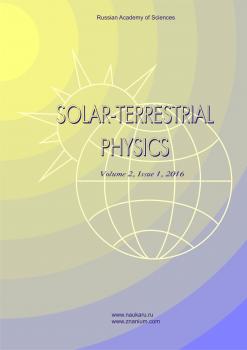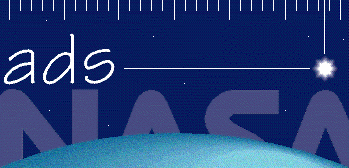Irkutsk, Russian Federation
Irkutsk, Russian Federation
Irkutsk, Russian Federation
Irkutsk, Russian Federation
Irkutsk, Russian Federation
UDC 62
The IS-MST radar, as the name implies, combines two different methods for studying the atmosphere using a backscatter signal. Turbulent fluctuations of the medium cause scattering in the mesosphere—stratosphere—troposphere (MST). In the upper atmosphere, incoherent scatter (IS) appears in ionospheric plasma. Special-purpose instruments have been built before such that measurements in one of these modes were the most effective. MST radars were utilized for studying wave activity in the lower and middle atmosphere; the IS radar, for ionospheric research. Nowadays, however, for a comprehensive investigation of atmospheric phenomena, it is necessary to have an idea of processes in all atmospheric layers and near-Earth space. The radar, which combines capabilities of IS and MST measurements, will be able to cover layers from the troposphere to the plasmosphere and to study processes of energy transfer from the lower and middle atmosphere to the ionosphere as well as the interaction of the magnetosphere with the upper atmosphere. Apart from atmospheric research, the radar will allow us to track spacecraft and space debris, determining precise coordinate characteristics. The antenna system is also suitable for radio astronomical observations. In the paper, we provide justification for the 154–162 MHz frequency range and discuss technical solutions of the IS-MST radar project and basic operating modes. In addition, we estimate radar diagnostic capabilities for different types of measurements.
IS-MST radar, National Heliogeophysical Complex, incoherent scatter, mesosphere-stratosphere-troposphere radar, ionosphere, atmosphere
1. Berngardt O.I., Kushnarev D.S. Effective subtraction technique at the Irkutsk Incoherent Scatter Radar: Theory and experiment. J. Atmos. Solar-Terr. Phys. 2013, vol. 105-106, pp. 293-298. DOI:https://doi.org/10.1016/j.jastp.2013.03.023.
2. Cho J.Y.N., Kelley M.C. Polar mesosphere summer radar echoes: observations and current theories. Rev. Geophys. 1993, vol. 31, no. 3, pp. 243-265. DOI:https://doi.org/10.1029/93RG01535.
3. Ding Z., Wu J., Xu Z., Xu B., Dai L. The Qujing incoherent scatter radar: system description and preliminary measurements. Earth, Planets and Space. 2018, vol. 70, iss. 1, article id. 87, 13 p. DOI:https://doi.org/10.1186/s40623-018-0859-8.
4. Evans J.V. Theory and practice of ionosphere study by Thomson Scatter Radar. Proc. IEEE. 1969, vol. 59, no. 4, pp. 496-530. DOI:https://doi.org/10.1109/PROC.1969.7005.
5. Farley D.T. Multiple-pulse incoherent-scatter correlation function measurements. Radio Sci. 1972, vol. 7, no. 6, pp. 661-666. DOI:https://doi.org/10.1029/RS007i006p00661.
6. Hocking W.K. Measurement of turbulent energy dissipation rates in the middle atmosphere by radar techniques: A review. Radio Sci. 1985, vol. 20, no. 6, pp. 1403-1422. DOI:https://doi.org/10.1029/RS020i006p01403.
7. Hocking W.K. Recent advances in radar instrumentation and techniques for studies of the mesosphere, stratosphere and troposphere. Radio Sci. 1997, vol. 32, no. 6, pp. 2241-2270. DOI:https://doi.org/10.1029/97RS02781.
8. Hocking W.K. A review of mesosphere-stratosphere-troposphere (MST) radar developments and studies, circa 1997-2008. J. Atmos. Solar-Terr. Phys. 2011, vol. 73, pp. 848-882. DOI:https://doi.org/10.1016/j.jastp.2010.12.009.
9. Khakhinov V.V., Lebedev V.P., Medvedev A.V., Ratovsky K.G. Capabilities of the Irkutsk Incoherent Scattering Radar for space debris studies. Proc. 5th European Conference on Space Debris. Darmstadt, Germany. 2009, vol. 5, no. 1, 7 r.
10. Kirkwood S. Polar mesosphere winter echoes - A review of recent results. Adv. Space Res. 2007, vol. 40, pp. 751-757. DOI:https://doi.org/10.1016/j.asr.2007.01.024.
11. Latteck R., Singer W., Rapp M., Vandepeer B., Renkwitz T., Zecha M., Stober G. MAARSY: The new MST radar on Andøya - System description and first results. Radio Sci. 2012, vol. 47, RS1006. DOI:https://doi.org/10.1029/2011RS004775.
12. Lübken F.-J. Turbulent scattering for radars: A summary. J. Atmos. Solar-Terr. Phys. 2014, vol. 107, pp. 1-7. DOI:https://doi.org/10.1016/j.jastp.2013.10.015.
13. Lübken F.-J., Latteck Ralph, Becker E., Höffner J., Murphy D. Using polar mesosphere summer echoes and stratospheric/mesospheric winds to explain summer mesopause jumps in Antarctica. J. Atmos. Solar-Terr. Phys. 2016, vol. 162, pp. 106-115. DOI:https://doi.org/10.1016/j.jastp.2016.06.008.
14. McCrea I., Aikio A., Alfonsi L., Belova E., Buchert S., Clilverd M., et al. The science case for the EISCAT_3D radar. Progress in Earth and Planetary Science. 2015, vol. 2. DOI:https://doi.org/10.1186/s40645-015-0051-8.
15. Medvedev A.V., Potekhin A.P. Irkutsk Incoherent Scatter Radar: history, present and future. Hist. Geo Space Sci. 2019, vol. 10. DOI:https://doi.org/10.5194/hgss-10-215-2019.
16. Medvedev A.V., Ratovsky K.G., Tolstikov M.V., Alsatkin S.S., Scherbakov A.A. Studying of the spatial-temporal structure of wavelike ionospheric disturbances on the base of Irkutsk Incoherent Scatter Radar and digisonde data. J. Atmos. Solar-Terr. Phys. 2013, vol. 105-106, pp. 350-357. DOI:https://doi.org/10.1016/j.jastp.2013.09.001.
17. Potekhin A.P, Setov A.G., Lebedev V.P., Medvedev A.V., Kushnarev D.S. Prospective IS-MST radar. Potential and diagnostic capabilities. J. Solar-Terr. Phys. 2016, vol. 2, no. 3, pp. 3-21. DOI:https://doi.org/10.12737/22281.
18. Rapp M., Strelnikova I., Latteck R., Hoffmann P., Hoppe U.-P., Häggström I., Rietveld M.T. Polar mesosphere summer echoes (PMSE) studied at Bragg wavelength of 2.8 m, 67 cm, and 16 cm. J. Atmos. Solar-Terr. Phys. 2008, vol. 70, pp. 947-961. DOI:https://doi.org/10.1016/j.jastp.2007.11.005.
19. Robinson R. New Techniques and Results from Incoherent Scatter Radars. URSI Radio Sci. Bull. 2004, vol. 2004, iss. 311, pp. 79-94. DOI:https://doi.org/10.23919/URSIRSB.2004.7909637.
20. Sato K., Tsutsumi M., Sato T., Nakamura T., Saito A., Tomikawa Y., et al. Program of the Antarctic Syowa MST/IS radar (PANSY). J. Atmos. Solar-Terr. Phys. 2014, vol. 118, pp. 2-15. DOI:https://doi.org/10.1016/j.jastp.2013.08.022.
21. Setov A.G., Globa M.V., Medvedev A.V., Vasilyev R.V., Kushnarev D.S. First results of absolute measurements of solar flux at the Irkutsk Incoherent Scatter Radar (IISR). Solar-Terr. Phys. 2018, vol. 4, no. 3, pp. 24-27. DOI:https://doi.org/10.12737/stp-43201804.
22. Shcherbakov A.A., Medvedev A.V., Kushnarev D.S. Correlation method for determining the ionospheric plasma drift velocity at the Irkutsk Incoherent Scatter Radar. Geomagnetism and Aeronomy. 2009, vol. 49, no. 7, pp. 1028-1033. DOI:https://doi.org/10.1134/S0016793209070317.
23. Shpynev B.G. Incoherent scatter Faraday rotation measurements on a radar with single linear polarization. Radio Sci. 2004, vol. 39, RS3001. DOI:https://doi.org/10.1029/2001RS002523.
24. Streltsov A.V., Berthelier J.-J., Chernyshov A.A., Frolov V.L., Honary F., Kosch M.J., et al. Past, present and future of active radio frequency experiments in space. Space Sci Rev. 2018, vol. 214, no. 118. DOI:https://doi.org/10.1007/s11214-018-0549-7.
25. Tashlykov V., Setov A., Medvedev A., Lebedev V., Kushnarev D. Ground clutter deducting technique for Irkutsk Incoherent Scatter Radar. Proc. 2019 Russian Open Conference on Radio Wave Propagation (RWP). 2019, pp. 175-178. DOI:https://doi.org/10.1109/RWP.2019.8810369.
26. Vasilyev R., Globa M., Kushnarev D., Medvedev A., Ratovsky K. Spectral characteristics of ionospheric scintillations of VHF radiosignal near magnetic zenith. J. Atmos. Solar-Terr. Phys. 2017, vol. 160, pp. 48-55. DOI:https://doi.org/10.1016/j.jastp.2017.05.016.
27. Yeh K.C., Liu C.-H. Radio wave scintillations in the ionosphere. Proc. the IEEE. 1982, vol. 70, no. 4, pp. 324-360. DOI:https://doi.org/10.1109/PROC.1982.12313.
28. Zeller O., Zecha M., Bremer J., Latteck R., Singer W. Mean characteristics of mesosphere winter echoes at mid- and high latitudes. J. Atm. and Solar-Terr. Phys. 2006, vol. 68, pp. 1087-1104. DOI:https://doi.org/10.1016/j.jastp.2006.02.015.
29. Zrnic D. Estimation of spectral moments for weather echoes. IEEE Trans. Geosci. Electronics. 1979, vol. GE-17, no. 4, pp. 113-128. DOI:https://doi.org/10.1109/TGE.1979.294638.


















